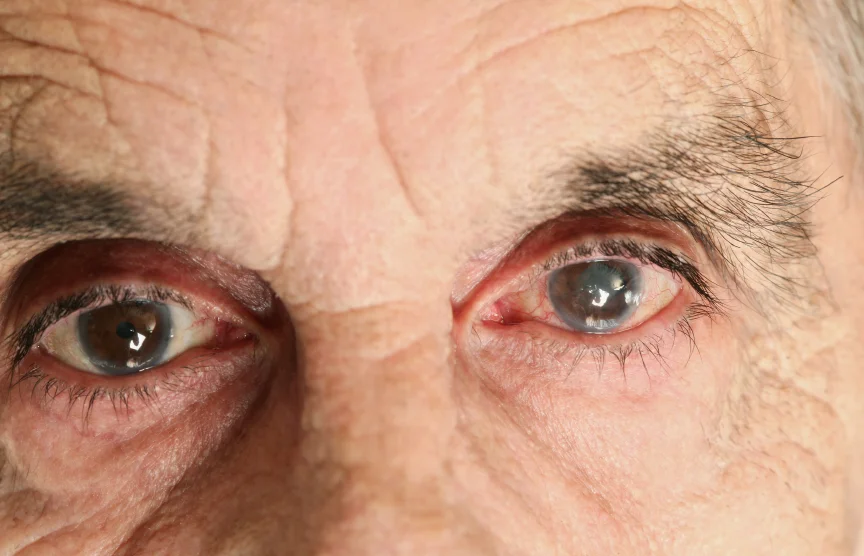Tobradex NOT to be used for itchy/burny eyes; they can cause glaucoma!
/I was referred a patient as a glaucoma suspect due to high intraocular pressure readings when seen by his referring Optometrist. The eye pressures were fine on the day I saw the patient and I was ready to give him my standard explanation for ocular hypertension being a risk factor for glaucoma but that a high pressure reading does not = glaucoma. As he was about to leave, he pulled out a bottle of Tobradex that he had been prescribed to take whenever his eyes felt gritty! Let’s talk about this one.
The 66 y.o. patient had been referred with IOP readings of of 27 OD and 26 OS that changed to 26 and 34 upon dilation at the referring Optometrist’s office. Although his optic nerves appeared within normal limits in each eye, there was an asymmetry such that the temporal rim was a bit thinner in the left eye compared to the right. When the patient was seen in my office, the IOP readings were 20 and 17 at 1030hrs, visual acuity 6/9 in both eyes with moderately low degree of mixed astigmatism correction. Visual field findings were non-specific with some spots missed in the right eye compared to age-matched controls.
The late to divulge information about having been prescribed Tobradex for when his eyes felt scratchy, itching or burning was neither expected nor appropriate. This patient had moderate prolapse of his lateral orbital fat pads in both eyes which were likely contributing to his already moderate dry eyes to cause irritation. Indiscriminate use of antibiotics can lead to resistance and the unnecessary steroid use, although it can comfort the inflamed eye, is known to carry with it a significant risk of raising the intraocular pressure which can lead to permanent glaucoma damage.
Tobradex drops
The late to divulge information about having been prescribed Tobradex for when his eyes felt scratchy, itching or burning was neither expected nor appropriate. This patient had moderate prolapse of his lateral orbital fat pads in both eyes which were likely contributing to his already moderate dry eyes to cause irritation. Indiscriminate use of antibiotics can lead to resistance and the unnecessary steroid use, although it can comfort the inflamed eye, is known to carry with it a significant risk of raising the intraocular pressure which can lead to permanent glaucoma damage.
This patient needs follow-up to make sure he is not developing early glaucoma damage that may have been at least partially due to the inappropriate use of steroids for dry eyes. He will be followed every 6 months for now and has been started on artificial tear drops for his dry eyes. In the future, surgery to remove some of the prolapsed periorbital fat will be given if this gets worse.


